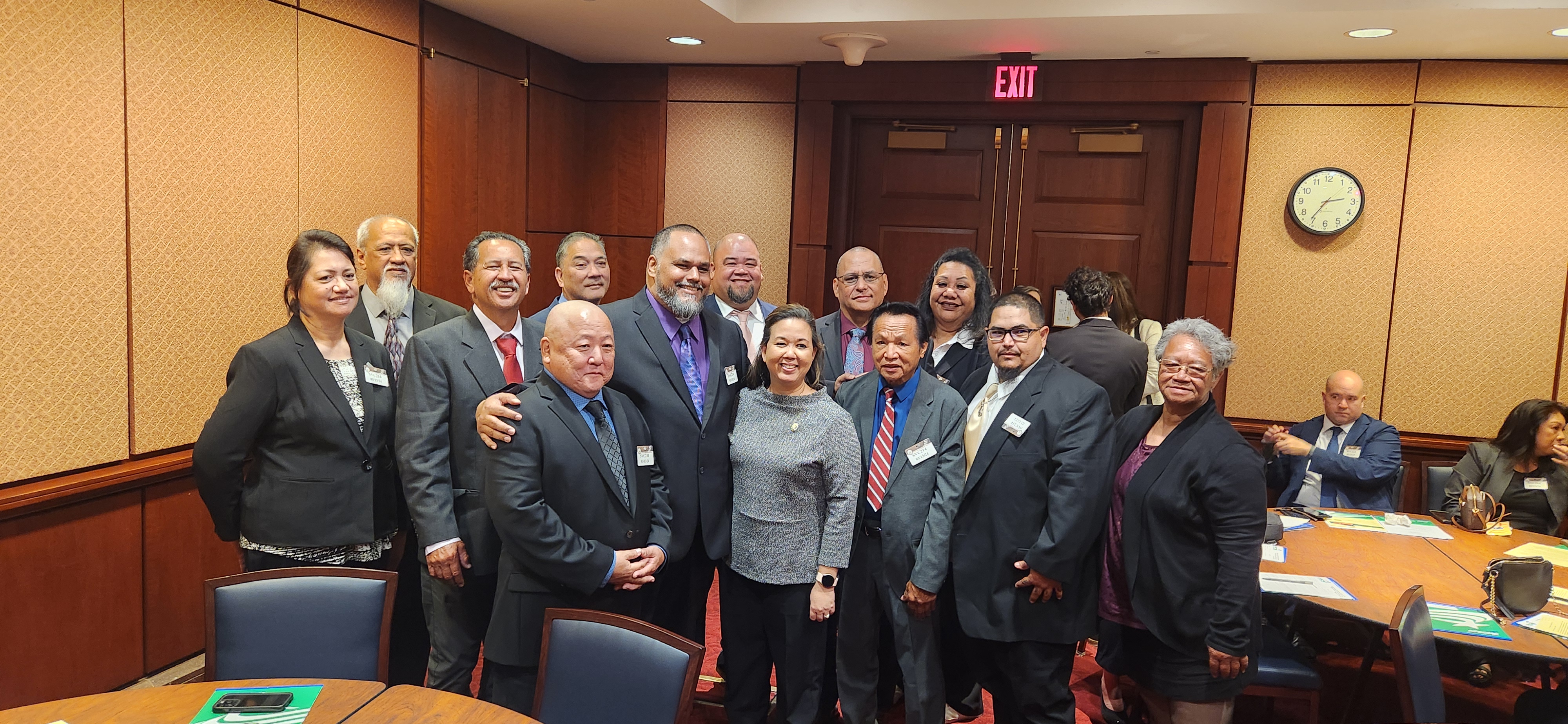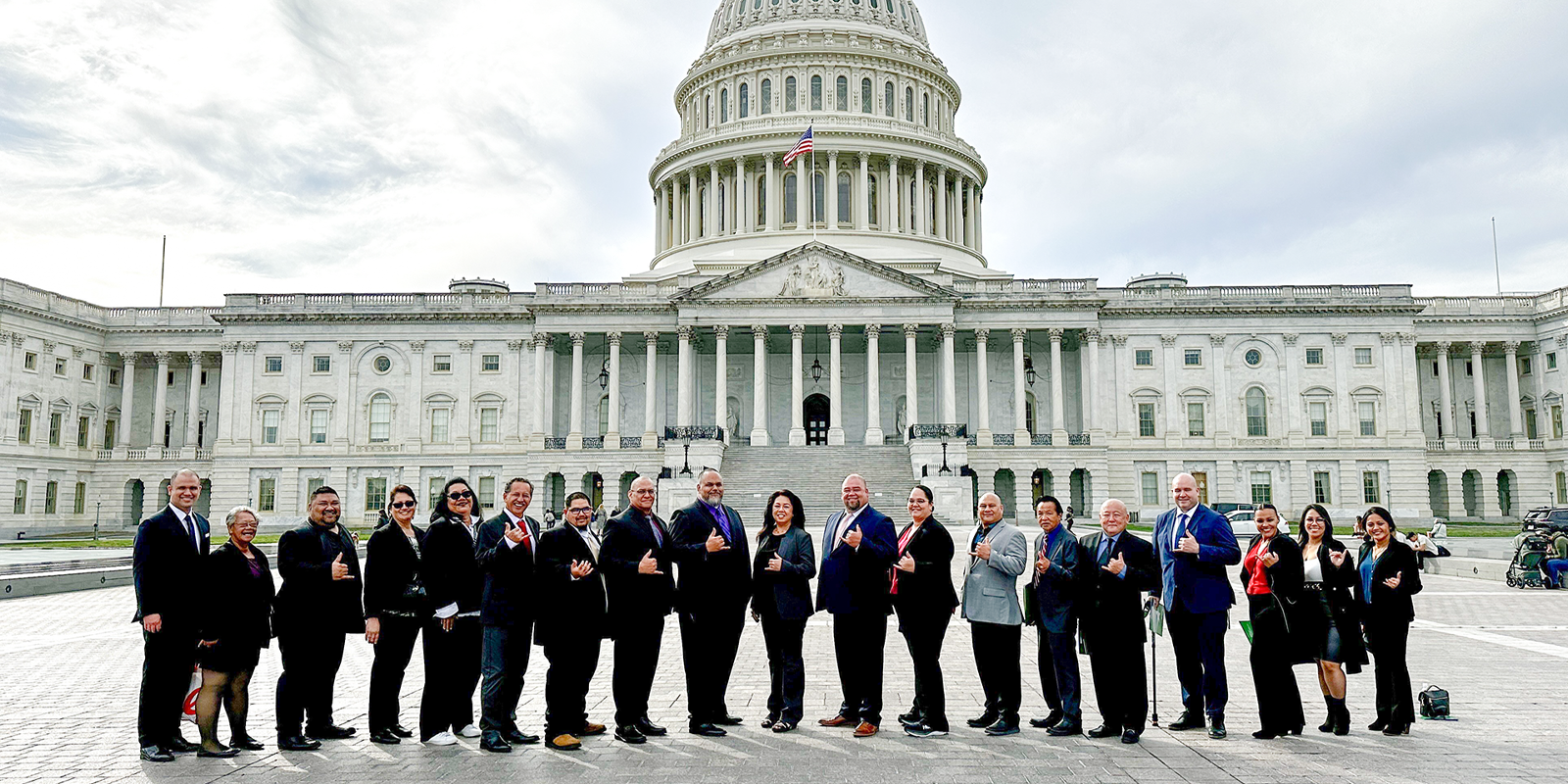
WASHINGTON – If you could meet face-to-face with your representative in Congress, what would you want them to know about the community you serve?
AFSCME members from Hawaii pondered that question this week. During their annual trip to our nation’s capital, members of Hawaii United Public Workers (UPW/AFSCME Local 646) on Wednesday met with Reps. Ed Case and Jill Tokuda, as well as the staff of Sens. Mazie Hirono and Brian Schatz.
“It gets them thinking about things they may not be aware of,” said Kinoe Palaualelo, a training sergeant in the state’s Department of Corrections and Rehabilitation and a UPW state executive board delegate. “Maybe down the road they vote in favor of a bill because they remember this conversation.”
Palaualelo and fellow members Feli Leota and Douglas Correia were part of a delegation from The Aloha State that made the nearly 5,000-mile trip to Washington for a weeklong study tour that included meetings with their elected officials on Capitol Hill.
“I think it’s important that our representatives hear from us in person because it’s more heartfelt than reading about these issues in the news,” said Correia, an equipment operator in Hawaii’s Department of Transportation and UPW’s Maui division secretary.
Among the issues they wanted to discuss with the lawmakers were staffing and funding shortages, low wages and poor working conditions.
Leota, a lieutenant for the Department of Corrections and Rehabilitation who serves as UPW state executive board delegate, said 30% of job positions remain vacant in the prison where she works, a common problem in prisons across the state. The worker shortage means many more work hours for her and her co-workers, with the exhaustion from mandatory overtime creating unsafe conditions in the workplace.
“We have staff working shifts of 64 hours straight without getting to go home,” she said. “It’s dangerous for everybody.”
The unfilled positions also affect the inmates, who may go days without leaving their cells because there is no one to take them outside.
“When you have inmates who don’t come out for their required out-of-cell time, when they remain locked up for three to four days straight, it’s a safety issue,” Leota added. “And they take it out on the staff.”
The prisons themselves are in dire need of repair, Palaualelo said.
“The prisons are all completely dilapidated,” he said. “The sinks don’t work, there is often no air conditioning, the roofs leak … these are really old facilities.”
For Correia, the DOT worker, the issue is funding.
“I often have to bring my own tools from home because I’m not always provided with the tools I need to do my job,” he said.
And while Hawaii often takes the top spot among states with the highest cost of living, UPW members say their wages are often lower than those of public service workers elsewhere.
“Our wages should reflect the fact that we play an important role in the safety of our communities, just like police and firefighters,” Palaualelo said.
During their private meetings on Capitol Hill, UPW members addressed our union’s federal budget priorities, which include increasing investments in public services that build strong communities; preserving safety net programs such as Medicaid, Medicare and Social Security; and raising revenues by ensuring the wealthy and profitable corporations pay their fair share in taxes.
AFSCME’s federal affairs agenda also includes demanding a voice on the job for all workers, a goal that can be achieved through passage of two bills: the Public Service Freedom to Negotiate Act, which would guarantee that public service workers in every state have the freedom to negotiate together, and the Richard L. Trumka Protecting the Right to Organize (PRO) Act, which would make it easier for workers in the private sector to form strong unions.
